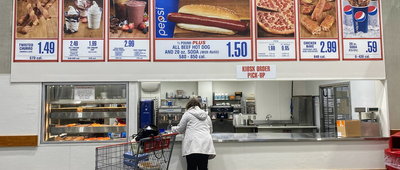Lose Weight, Not Money
Losing weight requires both rock-solid commitment and a plan for reaching and maintaining that goal weight. There's no shortage of weight-loss strategies out there, but the trick is finding one that doesn't chomp away at your wallet or your health. (Some diet foods actually make it harder to lose weight.) In truth, nothing beats eating right and moving more (that means daily) as a path to losing weight. Here are some of the gimmicks to avoid on your slim-down journey.
Related: 12 Ways to Work Out at Home and Stay Motivated
Emily Lugg also contributed to this story.


























